The sort of people who would consider it a literary or cinematic romantic cause to feel persecuted and go against the grain, not for sound, specific technical reasons just for the sake of it and for the same general, sham reasoning that they never applied, nor would apply against all the other social currents that they follow without any resistance...
The Original Gay Porn Community - Free Gay Movies and Photos, Gay Porn Site Reviews and Adult Gay Forums
-
Welcome To Just Us Boys - The World's Largest Gay Message Board Community
In order to comply with recent US Supreme Court rulings regarding adult content, we will be making changes in the future to require that you log into your account to view adult content on the site.
If you do not have an account, please register.
REGISTER HERE - 100% FREE / We Will Never Sell Your InfoTo register, turn off your VPN; you can re-enable the VPN after registration. You must maintain an active email address on your account: disposable email addresses cannot be used to register.
You are using an out of date browser. It may not display this or other websites correctly.
You should upgrade or use an alternative browser.
You should upgrade or use an alternative browser.
On Topic Discussion 2019 Coronavirus (COVID-19/SARS-CoV-2)
- Thread starter mikey3000
- Start date
- Joined
- Dec 31, 2007
- Posts
- 60,699
- Reaction score
- 14,494
- Points
- 113
At this point, the virus is so prevalent that, unless the unvaccinated people are planning on staying in their bedrooms, they're going to get immunity via repeated infections with different variants. In the US, >75% of the school age population has post-infection immunity to at least one variant, so that's an indication that we're getting to the point that everyone has either been vaccinated (acquired immunity) or has been infected.6.5% of the people in Spain refused to get vaccinated at the start of the campaign, in the spring of 2021, when almost half the population already had taken one shot.
What would be the "dispensable", rebellious part of the population, the percentage that would constitute a danger to themselves rather than to the whole population?
The joke is on those who chose not to get vaccinated. The new variants, particularly in the BA.5->BQ.1 XBB lineage have developed resistance to earlier omicron antibodies, so those who were infected last Spring will likely be reinfected this winter/spring.
- Joined
- Dec 31, 2007
- Posts
- 60,699
- Reaction score
- 14,494
- Points
- 113
This is the trending for the US. The purple bar is XBB.1.5 variant and the other two variants of concern that we're watching are BQ.1 (green) and BQ.1.1 (aqua).Hi KaraBulut, do you know if the XBB variant is resistant to the bivalent jabs we have been getting?
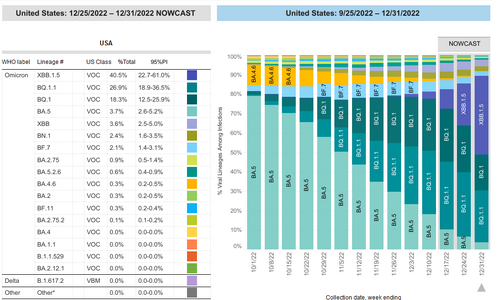
And this represents the regional incidence of the three variants (color coded to match above chart). XBB.1.5 is prevalent in the Northeast US. BQ.1/BQ.1.1 are prevalent in the South and West.
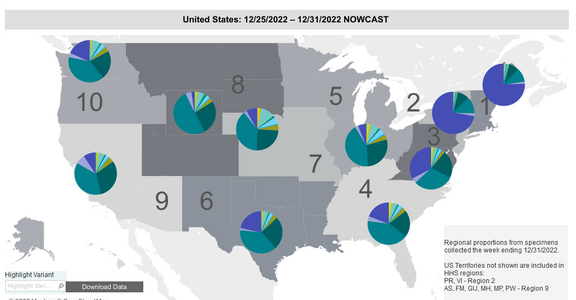
BQ.1/BQ.1.1 descend from the omicron BA.5 variant. XBB descends from omicron BA.2.
The bivalent booster targets the Wuhan virus plus the omicron BA.4 and BA.5 variant.
People who got the original vaccines (based on the 2020 Wuhan virus) but not the bivalent booster are likely to contract XBB, BQ.1 and BQ.1.1 because they have reduced protection against the omicron variant and because their antibodies levels have dropped since their last booster (bivalent boosters became available in Sep, 2022).
People who got the original vaccine and the bivalent booster are getting breakthrough infections with XBB, BQ.1 and BQ.1.1 but their symptoms are mild- varying from asymptomatic to mild cold-like symptoms. What I'm seeing in people who are testing positive for COVID-19 is that they seem to have a mild cold for 2-3 days (sniffles, mild sore throat, dry cough and occasionally fever) but the cold resolves without complications, except for an occasional bacterial sinus infection after a few days. We're not seeing big increases in hospitalizations like we did last year with omicron (BA.1 and BA.2) and the death rate has been flat at about 300 people per day.
(Note that on the right chart, it's the over age 60 groups (purple & pink lines) who are most likely to be hospitalized but from the left side graph, there hasn't been a big overall jump in hospitalizations).
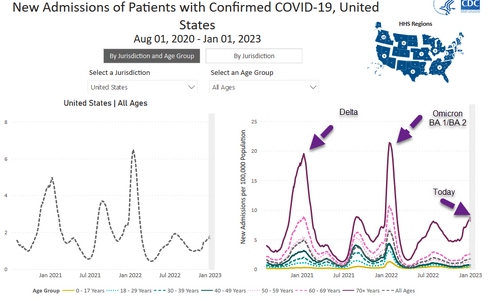
Worth mentioning: the US Post Office is shipping out 4 free home tests for the winter. Home tests are good for 15-18 months but if you need more, you can order them at www.covidtests.gov.
Last edited:
- Joined
- Jan 15, 2006
- Posts
- 122,824
- Reaction score
- 4,067
- Points
- 113
I just got a shingles shot and was asked about my reactions to the COVID shots. The head physician's assistant told me there was no need for any boosters for COVID after the second shot because "no vaccine has ever needed that", and told me I was foolish for getting any more shots after the first and second left me with a three-day bout that felt like the flu.At this point, the virus is so prevalent that, unless the unvaccinated people are planning on staying in their bedrooms, they're going to get immunity via repeated infections with different variants. In the US, >75% of the school age population has post-infection immunity to at least one variant, so that's an indication that we're getting to the point that everyone has either been vaccinated (acquired immunity) or has been infected.
The joke is on those who chose not to get vaccinated. The new variants, particularly in the BA.5->BQ.1 XBB lineage have developed resistance to earlier omicron antibodies, so those who were infected last Spring will likely be reinfected this winter/spring.
So far I'm feeling a touch nauseous with a really plugged-up head and a bit of dizziness when I turn corners.
- Joined
- Dec 31, 2007
- Posts
- 60,699
- Reaction score
- 14,494
- Points
- 113
If in fact, that is what the PA told you, he is telling you something that is against the recommendation of both the FDA and CDC. The recommendation is a booster at 4 months and a bivalent booster for people who received the original shots. The reality is that we had so many pediatric cases of XBB variants at the end of the school year that we may be getting to a point where the bivalent vaccine won't provide adequate antibody coverage for the latest variants. Hospitalizations and severe illness have stayed low in vaccinated patients but they are getting cold/flu type symptoms with their COVID infections.I just got a shingles shot and was asked about my reactions to the COVID shots. The head physician's assistant told me there was no need for any boosters for COVID after the second shot because "no vaccine has ever needed that", and told me I was foolish for getting any more shots after the first and second left me with a three-day bout that felt like the flu.
So far I'm feeling a touch nauseous with a really plugged-up head and a bit of dizziness when I turn corners.
We will probably end up with an updated booster to cover the newest variants and whatever variants are brewing in China at the moment.
The shingles shot (Shingrix) can be no fun. It's a series of 2 shots and it is designed to trigger a strong immune response to a dormant virus that most Americans have in their nerve endings. I'm honest with patients who get it that the first shot is usually fairly mild but the second shot usually triggers flu-like syndromes that can last a couple of days.
However, I also have to contrast the Shingrix experience with actually getting a moderate to severe case of shingles. Shingles feels like having a really awful burn. The pain from shingles is bad because it directly attacks the nerves in the area where it erupts. Many patients come to us because the pain is so bad from the shingles that they cannot sleep. We end up putting them on very strong pain medicine. I have seen patients with shingles on their eye. I have also seen reports of shingles affecting the brain which can be lethal.
The shingles vaccine is not fun but it is mild compared to an actual case of shingles.
I think I mentioned that I would ask about why you're having these unusually strong reactions to immunizations. It's not necessarily a bad thing but understanding the cause might give them a better idea of what to expect and if there are options to mitigate some of the side effects.
I may have said this before, but I'm going to give a little testimony here. I had shingles in the mid 90s before a vaccine was available. It was the most painful thing I've ever had. It started just above my right ear, went down my head, face and neck, across my throat and down my chest. My eyes were spared, thankfully. I was prescribed Famvir. I don't know if it helped, or not. Just the air movement from walking felt like flames against the skin. It took a full month for the worst of it to subside, but symptoms persisted for a year with sudden nerve flares and twitches.
I got the first vaccine as a soon as it was available. I've also now had the two shots of Shingrix. The second shot was March, 2020 just before covid hit here.
It is true, the first Shingrix shot was not too bad. The second one, I was down for about 36 hours, had 101F fever and felt awful. It was worse than the covid shot reactions. BUT..and this is the point. The second Shingrix shot was chocolate cake and ice cream on a gold plate compared to actually having shingles. No bullshit. Every second of that 36 hours was worth it to not get shingles again. Ho..ly Crap! Shingles is horrible!
Whoever reads this, and if you have not had the shingles vaccine. Get the shingles vaccine! You do not want shingles. Trust me.
I got the first vaccine as a soon as it was available. I've also now had the two shots of Shingrix. The second shot was March, 2020 just before covid hit here.
It is true, the first Shingrix shot was not too bad. The second one, I was down for about 36 hours, had 101F fever and felt awful. It was worse than the covid shot reactions. BUT..and this is the point. The second Shingrix shot was chocolate cake and ice cream on a gold plate compared to actually having shingles. No bullshit. Every second of that 36 hours was worth it to not get shingles again. Ho..ly Crap! Shingles is horrible!
Whoever reads this, and if you have not had the shingles vaccine. Get the shingles vaccine! You do not want shingles. Trust me.
- Joined
- Jan 15, 2006
- Posts
- 122,824
- Reaction score
- 4,067
- Points
- 113
It surprised the heck out of me, that's for sure. I got to wondering if I should say something to someone, but I decided I'll wait for the inevitable "How was our service?" questionnaire. While she was saying, "I only got two shots and I'm fine!" I was wondering where in the world she got medical training and how as medical staff at a clinic she got away with not having all the boosters!If in fact, that is what the PA told you, he is telling you something that is against the recommendation of both the FDA and CDC. The recommendation is a booster at 4 months and a bivalent booster for people who received the original shots. The reality is that we had so many pediatric cases of XBB variants at the end of the school year that we may be getting to a point where the bivalent vaccine won't provide adequate antibody coverage for the latest variants. Hospitalizations and severe illness have stayed low in vaccinated patients but they are getting cold/flu type symptoms with their COVID infections.
I haven't been paying as much attention lately, but I had the impression that new variants have been rather anemic.We will probably end up with an updated booster to cover the newest variants and whatever variants are brewing in China at the moment.
After the initial bit of nausea and weird balance issue -- which was quite similar to a side effect I had from a medication when in university, though that reaction was bizarre because I would intend to turn a corner and I felt like I was turning a cornet but my body ran right into a wall; this feels more like I'm turning too fast so my balance suffers -- I've just felt mildly "off" today. My biggest problem has been the pain in the shoulder where I got the shot.The shingles shot (Shingrix) can be no fun. It's a series of 2 shots and it is designed to trigger a strong immune response to a dormant virus that most Americans have in their nerve endings. I'm honest with patients who get it that the first shot is usually fairly mild but the second shot usually triggers flu-like syndromes that can last a couple of days.
Thinking of that reminded me; she didn't bother to ask which shoulder I'd prefer to have incapacitated for a few days -- odd.
Speaking of feeling a "burn", my shoulder just felt like the same old "kicked by a mule" symptom I've had with some shots before, though I'd rate this one as "kicked by an angry cow who thought I was a danger to her calf", right up until this afternoon when I went to the post office; as we got to the door Knox leaped ahead and jerked hard on the leash, which of course I was holding in the hand on the side where I got the shot, and since then it's felt like a burning sensation that's slowly fading. That's an issue right now because I should be fixing dinner but that shoulder is nearly useless at the moment.However, I also have to contrast the Shingrix experience with actually getting a moderate to severe case of shingles. Shingles feels like having a really awful burn. The pain from shingles is bad because it directly attacks the nerves in the area where it erupts. Many patients come to us because the pain is so bad from the shingles that they cannot sleep. We end up putting them on very strong pain medicine. I have seen patients with shingles on their eye. I have also seen reports of shingles affecting the brain which can be lethal.
I remember once reacting strongly to a shot, and a friend told me it serves me right because all the tome when I was a kid I actually liked getting shots -- one doctor found it unnerving that an eight-year-old kid wanted to watch the needle go in.
When I lay my other hand over the injection spot I expected that the added warmth would make the burning sensation worse, but it actually helps, thoough if I apply pressure it feels like I'm being stabbed.
Just for interest's sake, typing makes the injection site itch mildly.
Yesterday was my introductory visit to a new doctor. It didn't take me long to decide I'm going to switch: this guy talks so quietly I could barely understand him, but the big item is that he's afraid of dogs. I can understand that since I spent most of my life afraid of dogs after I got bitten on my face as a kid (which my memory blocked until I first had Bammer), but it's not gong to work having a doctor who doesn't greet my service dog! So I totally forgot about asking about my reactions -- though given the PA's point of view maybe I was better off not asking.The shingles vaccine is not fun but it is mild compared to an actual case of shingles.
I think I mentioned that I would ask about why you're having these unusually strong reactions to immunizations. It's not necessarily a bad thing but understanding the cause might give them a better idea of what to expect and if there are options to mitigate some of the side effects.
- Joined
- Jan 15, 2006
- Posts
- 122,824
- Reaction score
- 4,067
- Points
- 113
My reaction to this first shot was more interesting than anything, right up until I had to drive: I could not use that arm to turn the wheel, only to hold it in place, so my turned in the post office parking lot were rather jerky affairs.I may have said this before, but I'm going to give a little testimony here. I had shingles in the mid 90s before a vaccine was available. It was the most painful thing I've ever had. It started just above my right ear, went down my head, face and neck, across my throat and down my chest. My eyes were spared, thankfully. I was prescribed Famvir. I don't know if it helped, or not. Just the air movement from walking felt like flames against the skin. It took a full month for the worst of it to subside, but symptoms persisted for a year with sudden nerve flares and twitches.
I got the first vaccine as a soon as it was available. I've also now had the two shots of Shingrix. The second shot was March, 2020 just before covid hit here.
It is true, the first Shingrix shot was not too bad. The second one, I was down for about 36 hours, had 101F fever and felt awful. It was worse than the covid shot reactions. BUT..and this is the point. The second Shingrix shot was chocolate cake and ice cream on a gold plate compared to actually having shingles. No bullshit. Every second of that 36 hours was worth it to not get shingles again. Ho..ly Crap! Shingles is horrible!
Whoever reads this, and if you have not had the shingles vaccine. Get the shingles vaccine! You do not want shingles. Trust me.
And then I had to hold Knox because there was someone at the door, and of course he pawed at my shoulder -- it felt like a two-hundred pound dog landing on me, not a fifty-pound puppy!
- Joined
- Dec 31, 2007
- Posts
- 60,699
- Reaction score
- 14,494
- Points
- 113
It's difficult to make generalizations about groups of providers but there is a difference in the training for paraprofessional providers.It surprised the heck out of me, that's for sure. I got to wondering if I should say something to someone, but I decided I'll wait for the inevitable "How was our service?" questionnaire. While she was saying, "I only got two shots and I'm fine!" I was wondering where in the world she got medical training and how as medical staff at a clinic she got away with not having all the boosters!
PAs often have limited clinical experience when they obtain their license. The programs are graduate level programs with 2 years of training but their undergraduate degree is rarely clinical. For example, you could get a 4 year chemistry degree then spend 2 years in a PA program, take the test and you would be a PA, regardless of whether you did any patient care. Nurse practitioners have a nursing degree, typically practice as a nurse for 2-10 years and then attend a 2 year advanced nursing program before taking an advanced licensing exam.
The difference in clinical experience does make a difference.
Regardless of whether someone is a nurse, a physician, a nurse practitioner or a physicians assistant, they're all supposed to be using evidence-based practice. Currently the evidence and recommendations from public health authorities say that everyone should be getting the bivalent booster. Anyone with a license who recommends otherwise is not following the recommendations, and more important, they're not following the evidence.
Or to put it another way, if you had a young child and a medical professional said, "Nah, we don't need to follow the CDC recommendations for measles, polio and pertussis vaccination", wouldn't you take your kid to another practitioner? I would.
In December, the US had about 350 people dying per day of COVID-19. This compares to 2021 which had 915 dying per day and 2020 which had 2,390 people dying per day.I haven't been paying as much attention lately, but I had the impression that new variants have been rather anemic.
It's not that the variants are anemic- they're incredibly contagious. The difference is that the majority of the population has immunity to the virus which us why the death numbers dropped so significantly.
More important: did your dog like him?Yesterday was my introductory visit to a new doctor. It didn't take me long to decide I'm going to switch: this guy talks so quietly I could barely understand him, but the big item is that he's afraid of dogs...
Last edited:
- Joined
- Mar 24, 2020
- Posts
- 2,425
- Reaction score
- 1,101
- Points
- 113
I have a question about the boosters and am getting confused now with all of the PSAs.
I have had five shots now and have them on my card in my wallet. I keep hearing about a "new" booster shot. Does anyone know if they are talking about #5 or is there now a #6?
I have had five shots now and have them on my card in my wallet. I keep hearing about a "new" booster shot. Does anyone know if they are talking about #5 or is there now a #6?
- Joined
- Dec 31, 2007
- Posts
- 60,699
- Reaction score
- 14,494
- Points
- 113
The first week of Sep, 2022 the US updated the COVID-19 boosters for ages 12 and older. The new bivalent booster contains mRNA for the original Wuhan strain and updated mRNA for omicron BA.1. If you got a booster after the September change, you received the bivalent booster- it's now the only booster offered for Americans age 12 and older..I have a question about the boosters and am getting confused now with all of the PSAs.
I have had five shots now and have them on my card in my wallet. I keep hearing about a "new" booster shot. Does anyone know if they are talking about #5 or is there now a #6?
The details are on post #4116.
- Joined
- Mar 24, 2020
- Posts
- 2,425
- Reaction score
- 1,101
- Points
- 113
Thanks! I checked my card and I got the 5th shot on September 27. In my county there is a huge parking lot with a bunch of tents and facilities where anyone can drive in and get a free shot. I keep wondering now because the tent medical facility has been up now for maybe two years so it is confusing to me without the shot number. and hearing the PSAs on the radio as it is a new shot.The first week of Sep, 2022 the US updated the COVID-19 boosters for ages 12 and older. The new bivalent booster contains mRNA for the original Wuhan strain and updated mRNA for omicron BA.1. If you got a booster after the September change, you received the bivalent booster- it's now the only booster offered for Americans age 12 and older..
The details are on post #4116.
I guess I don't consider that some people wait a long time or don't bother getting a shot which is maybe why they have been open so long.
- Joined
- Jan 15, 2006
- Posts
- 122,824
- Reaction score
- 4,067
- Points
- 113
Darn -- one of the new PAs at the clinic is incredibly nice and very cute, and I was hoping to ask if he could be my regular physician.It's difficult to make generalizations about groups of providers but there is a difference in the training for paraprofessional providers.
PAs often have limited clinical experience when they obtain their license. The programs are graduate level programs with 2 years of training but their undergraduate degree is rarely clinical. For example, you could get a 4 year chemistry degree then spend 2 years in a PA program, take the test and you would be a PA, regardless of whether you did any patient care. Nurse practitioners have a nursing degree, typically practice as a nurse for 2-10 years and then attend a 2 year advanced nursing program before taking an advanced licensing exam.
The difference in clinical experience does make a difference.
I just got the "How did we do?" questionnaire link in my email box; I think I'll mention it.Regardless of whether someone is a nurse, a physician, a nurse practitioner or a physicians assistant, they're all supposed to be using evidence-based practice. Currently the evidence and recommendations from public health authorities say that everyone should be getting the bivalent booster. Anyone with a license who recommends otherwise is not following the recommendations, and more important, they're not following the evidence.
Or to put it another way, if you had a young child and a medical professional said, "Nah, we don't need to follow the CDC recommendations for measles, polio and pertussis vaccination", wouldn't you take your kid to another practitioner? I would.
So how do the figures look with deaths per infection? I think that's what I actually meant by "anemic", that people being infected are less likely to die of it.In December, the US had about 350 people dying per day of COVID-19. This compares to 2021 which had 915 dying per day and 2020 which had 2,390 people dying per day.
It's not that the variants are anemic- they're incredibly contagious. The difference is that the majority of the population has immunity to the virus which us why the death numbers dropped so significantly.
Knox likes everyone -- that's not much of a measure. A couple of weeks ago when I was reviewing his status for his "Puppy Star" award my buddy here laughed at "Socialization"; he said Knox is "over-socialized". The toughest part of training so far has been teaching him not to jump up on people to deliver kisses.More important: did your dog like him?
- Joined
- Jan 15, 2006
- Posts
- 122,824
- Reaction score
- 4,067
- Points
- 113
People here are confused, too; there are two grocery stores with signs "Get your new COVID shot" with a 10% discount on groceries, signs that didn't appear until December.Thanks! I checked my card and I got the 5th shot on September 27. In my county there is a huge parking lot with a bunch of tents and facilities where anyone can drive in and get a free shot. I keep wondering now because the tent medical facility has been up now for maybe two years so it is confusing to me without the shot number. and hearing the PSAs on the radio as it is a new shot.
I guess I don't consider that some people wait a long time or don't bother getting a shot which is maybe why they have been open so long.
- Joined
- Mar 24, 2020
- Posts
- 2,425
- Reaction score
- 1,101
- Points
- 113
Good - thanks for telling me that. I was hoping it wasn't just me. I still have confusion and brain fog from when I had covid and the stroke it gave me and I have to wonder alot whether I am just going brain dead or going off in tangents even though I did that before the stroke just now it is worse. The ads here sound like it is a new thing as well so without the number my brain gets tired of trying to figure it out.People here are confused, too; there are two grocery stores with signs "Get your new COVID shot" with a 10% discount on groceries, signs that didn't appear until December.
- Joined
- Jan 15, 2006
- Posts
- 122,824
- Reaction score
- 4,067
- Points
- 113
It's nice having people on forums like this who can clear things up for us!Good - thanks for telling me that. I was hoping it wasn't just me. I still have confusion and brain fog from when I had covid and the stroke it gave me and I have to wonder alot whether I am just going brain dead or going off in tangents even though I did that before the stroke just now it is worse. The ads here sound like it is a new thing as well so without the number my brain gets tired of trying to figure it out.
- Joined
- Jan 15, 2006
- Posts
- 122,824
- Reaction score
- 4,067
- Points
- 113
I thought we could use a little break for some humor:


- Joined
- Dec 31, 2007
- Posts
- 60,699
- Reaction score
- 14,494
- Points
- 113
General updates from the past week:
US COVID-19 cases for January, 2023:
COVID-19 case numbers declined slightly at the end of January after the holiday surge.
As Americans have let down their guard, some gatherings have turned into superspreader events. Included was the Golden Globes where multiple celebrities including Brendan Gleeson, Collin Farrell, Jamie Lee Curtis, Jean Smart and Michelle Pfeiffer reported they will not be attending other awards ceremonies this month because they contracted COVID-19 at the Golden Globes.
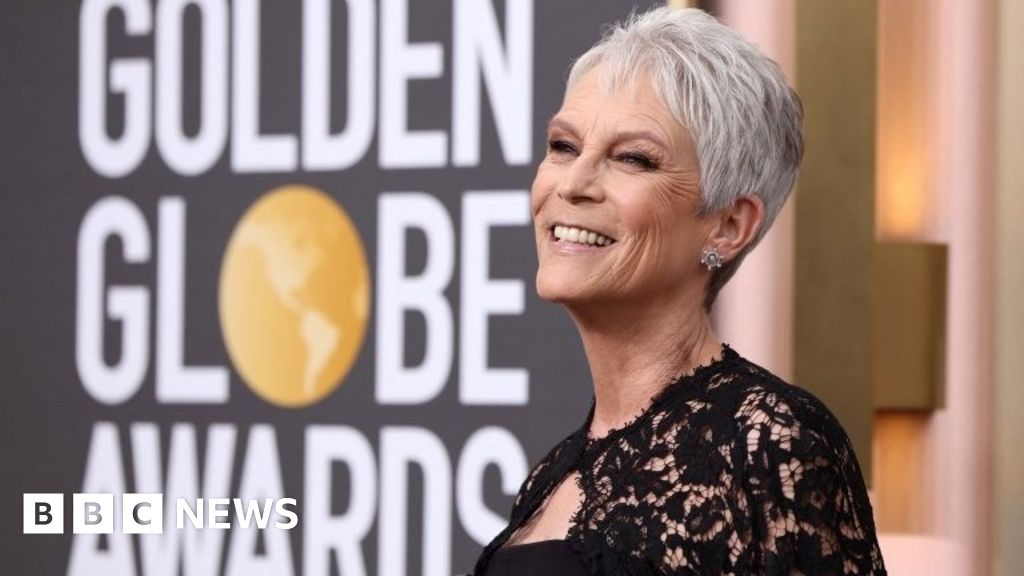
US Deaths from COVID-19 in 2022:
The CDC is estimating that COVID-19 was the 3rd leading cause of death in the US for 2022. However, the overall death rate has declined for 2022 after nearly 1 in 8 deaths in 2021 was caused by COVID-19.
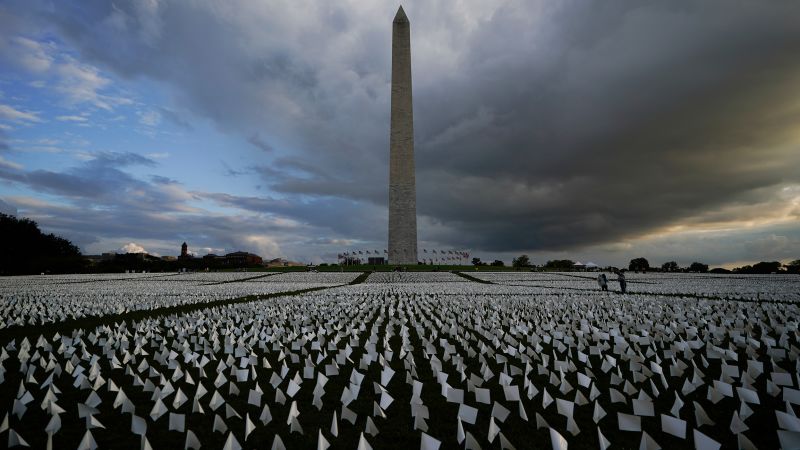
 www.cnn.com
www.cnn.com
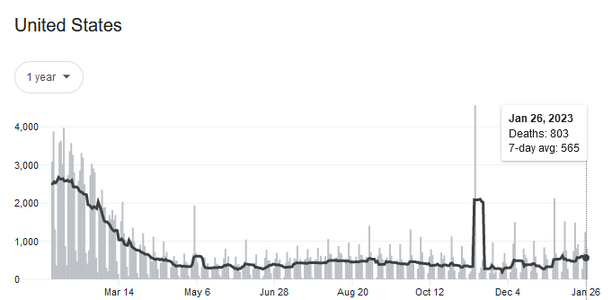
US Vaccine and Treatment Updates:
There was uncertainty about whether the new bivalent vaccine would offer protection for new variants like XBB.1. The preliminary results of studies estimate that the new bivalent vaccine lowers risk of contracting the new variants by about 50%.
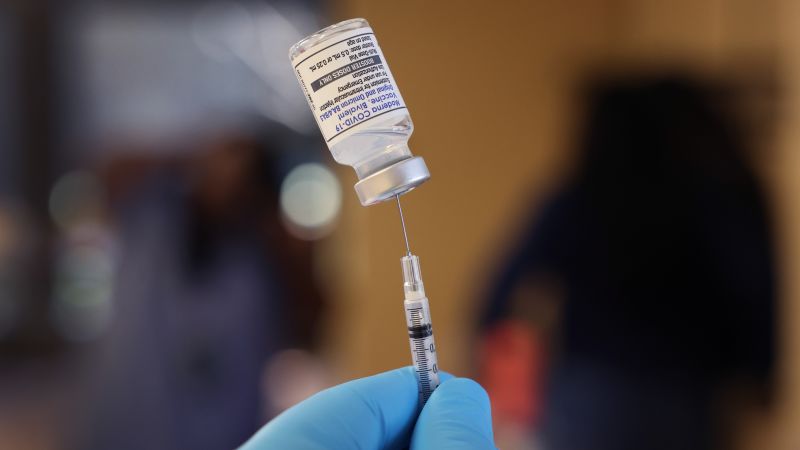
 www.cnn.com
www.cnn.com
However, the news for antibody treatments and new variants is not good. During the alpha and delta variant surge, before vaccines were widely available, antibody treatments were crucial for lowering death rates. However, the new variants have no longer susceptible to existing antibody treatments and the FDA is withdrawing the emergency approvals for these treatments:
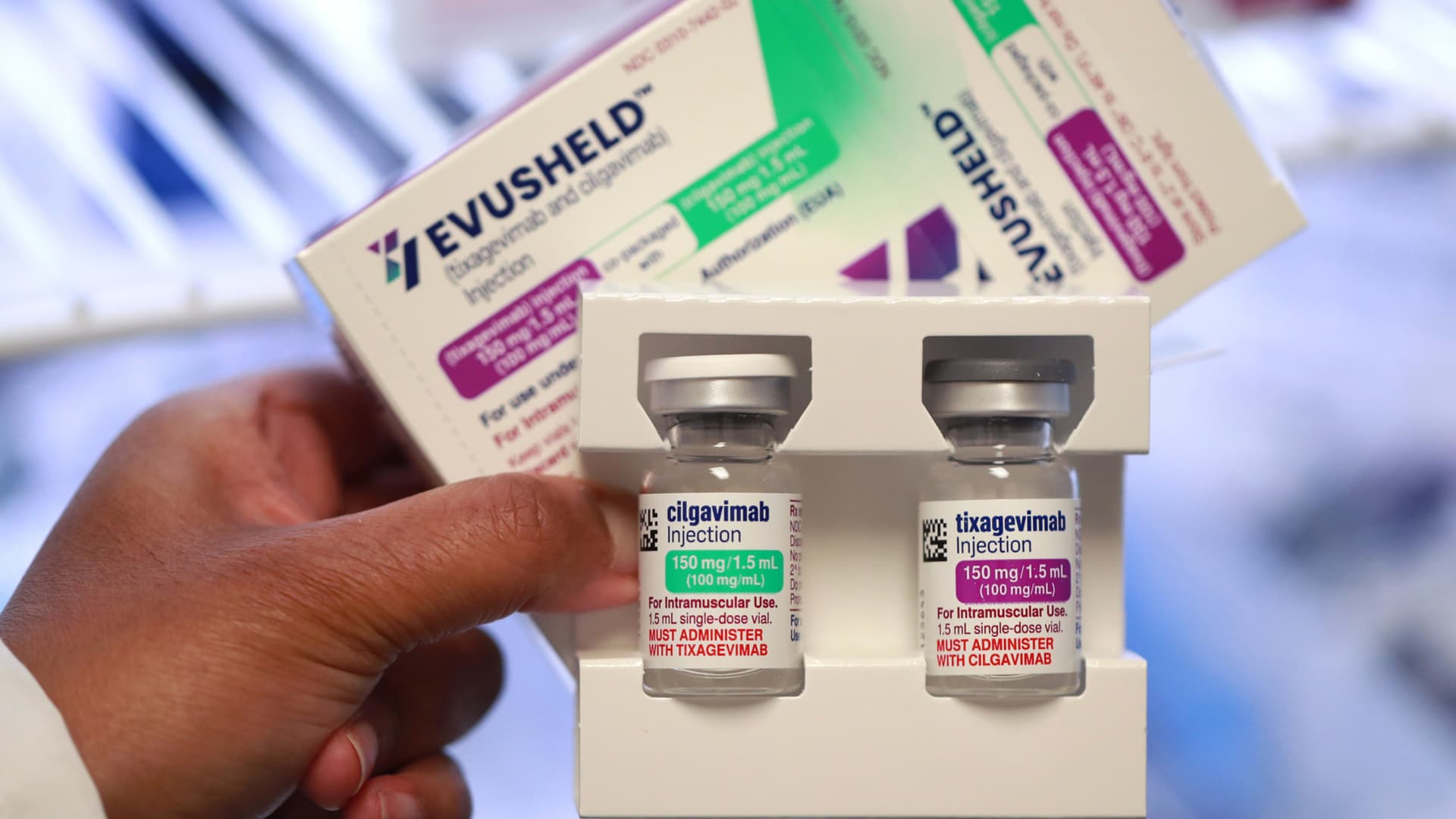
 www.cnbc.com
www.cnbc.com
The FDA is moving toward recommending that the COVID vaccines be administered yearly for most Americans. There is still some discussion underway because COVID-19 is creating variants at a much higher rate than other viruses like influenza.
Also, COVID doesn't have a clear seasonality like influenza; flu seasons are more predictable and the flu shots are can be timed to match the cold/flu seasons in the northern and southern hemisphere. Until the COVID virus in circulation becomes more stable and a clear seasonal pattern is established, we may be getting COVID-19 boosters more often than yearly.
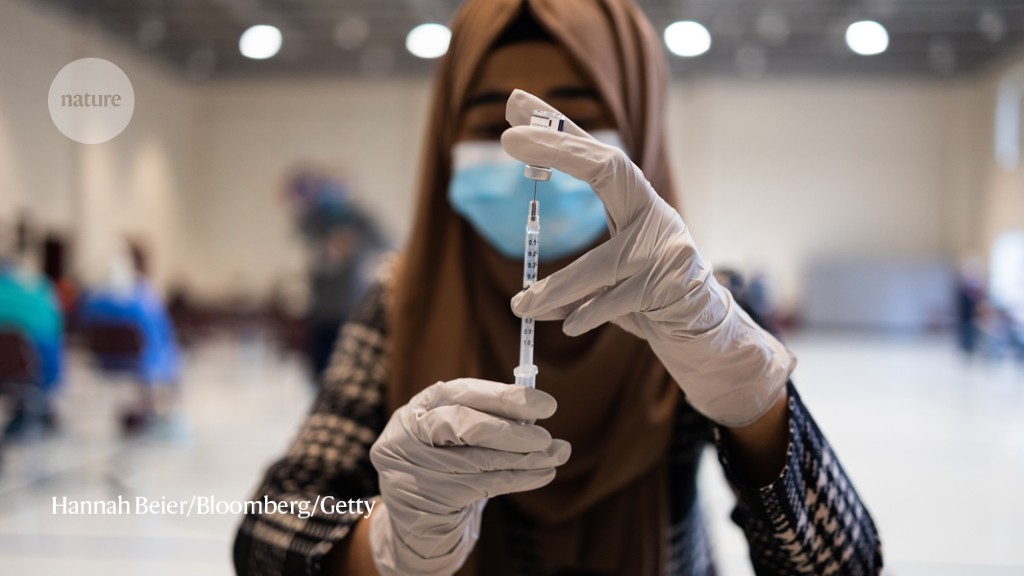
 www.nature.com
www.nature.com
COVID-19 in China:
China is still under-reporting both COVID-19 cases and deaths. Since the Chinese government lifted COVID-19 restrictions in late 2022, an estimated 75% of China's 1.412 billion people have contracted COVID-19.
China has reported 60,000 "official" deaths in hospital from COVID. However, demographers say that the actual number is probably going to exceed 1 million people. COVID-19 has been particularly deadly in rural areas where people tend to be poorer, older and have less access to vaccines and hospitals. Rural areas are reporting a shortage of funeral urms and caskets.
/cloudfront-us-east-2.images.arcpublishing.com/reuters/HAIGAZEVDFMOBAGIU4AQZW3M4U.jpg)
 www.reuters.com
www.reuters.com

 www.economist.com
www.economist.com

US COVID-19 cases for January, 2023:
COVID-19 case numbers declined slightly at the end of January after the holiday surge.
As Americans have let down their guard, some gatherings have turned into superspreader events. Included was the Golden Globes where multiple celebrities including Brendan Gleeson, Collin Farrell, Jamie Lee Curtis, Jean Smart and Michelle Pfeiffer reported they will not be attending other awards ceremonies this month because they contracted COVID-19 at the Golden Globes.

Golden Globes: Several celebrities announce Covid days after awards
A number of celebrities who attended this year's awards test positive for Covid-19 days later.
www.bbc.com
US Deaths from COVID-19 in 2022:
The CDC is estimating that COVID-19 was the 3rd leading cause of death in the US for 2022. However, the overall death rate has declined for 2022 after nearly 1 in 8 deaths in 2021 was caused by COVID-19.

Covid-19 and drug overdoses drive US life expectancy to lowest level in 25 years, CDC reports | CNN
Life expectancy in the United States dropped for the second consecutive year in 2021, falling to the lowest it has been since 1996, according to final mortality data published Thursday by the US Centers for Disease Control and Prevention's National Center for Health Statistics.

US Vaccine and Treatment Updates:
There was uncertainty about whether the new bivalent vaccine would offer protection for new variants like XBB.1. The preliminary results of studies estimate that the new bivalent vaccine lowers risk of contracting the new variants by about 50%.

Updated boosters are cutting the risk of getting sick from Covid-19 by about half | CNN
The updated Covid-19 boosters are cutting the risk that a person will get sick from the coronavirus by about half, even against infections caused by the rapidly spreading XBB.1.5 subvariant.
However, the news for antibody treatments and new variants is not good. During the alpha and delta variant surge, before vaccines were widely available, antibody treatments were crucial for lowering death rates. However, the new variants have no longer susceptible to existing antibody treatments and the FDA is withdrawing the emergency approvals for these treatments:

FDA withdraws Covid antibody treatment Evusheld because it's not effective against 93% of subvariants
Many take Evusheld as an additional layer of protection because the vaccines do not trigger a strong immune response for them.
The FDA is moving toward recommending that the COVID vaccines be administered yearly for most Americans. There is still some discussion underway because COVID-19 is creating variants at a much higher rate than other viruses like influenza.
Also, COVID doesn't have a clear seasonality like influenza; flu seasons are more predictable and the flu shots are can be timed to match the cold/flu seasons in the northern and southern hemisphere. Until the COVID virus in circulation becomes more stable and a clear seasonal pattern is established, we may be getting COVID-19 boosters more often than yearly.

Should COVID vaccines be yearly? Proposal divides US scientists
Some say the US Food and Drug Administration’s proposal to update COVID-19 vaccines each year, similar to influenza jabs, could boost uptake.
COVID-19 in China:
China is still under-reporting both COVID-19 cases and deaths. Since the Chinese government lifted COVID-19 restrictions in late 2022, an estimated 75% of China's 1.412 billion people have contracted COVID-19.
China has reported 60,000 "official" deaths in hospital from COVID. However, demographers say that the actual number is probably going to exceed 1 million people. COVID-19 has been particularly deadly in rural areas where people tend to be poorer, older and have less access to vaccines and hospitals. Rural areas are reporting a shortage of funeral urms and caskets.
/cloudfront-us-east-2.images.arcpublishing.com/reuters/HAIGAZEVDFMOBAGIU4AQZW3M4U.jpg)
China says COVID deaths, severe cases have fallen over 70% since peak
Critically ill COVID-19 cases in China are down 72% from a peak early this month while daily deaths among COVID-19 patients in hospitals have dropped 79% from their peak, the Center for Disease Control and Prevention said on Wednesday.

Covid-19 has already torn through large swathes of China
But a second wave could be more deadly

China Covid: Coffins sell out as rural losses mount
The BBC finds evidence of a mounting death toll from the virus that's ripped through villages.
www.bbc.com


